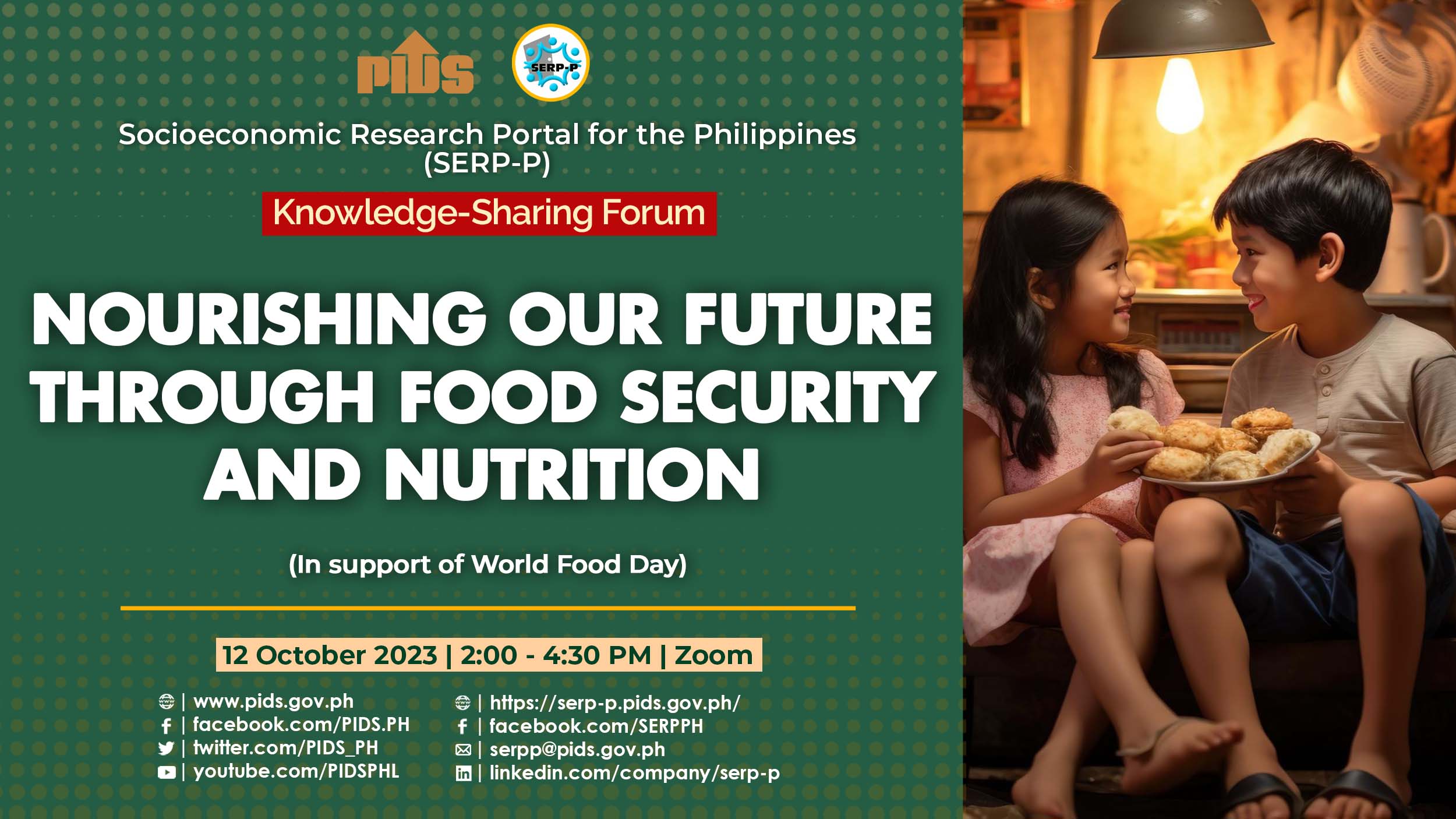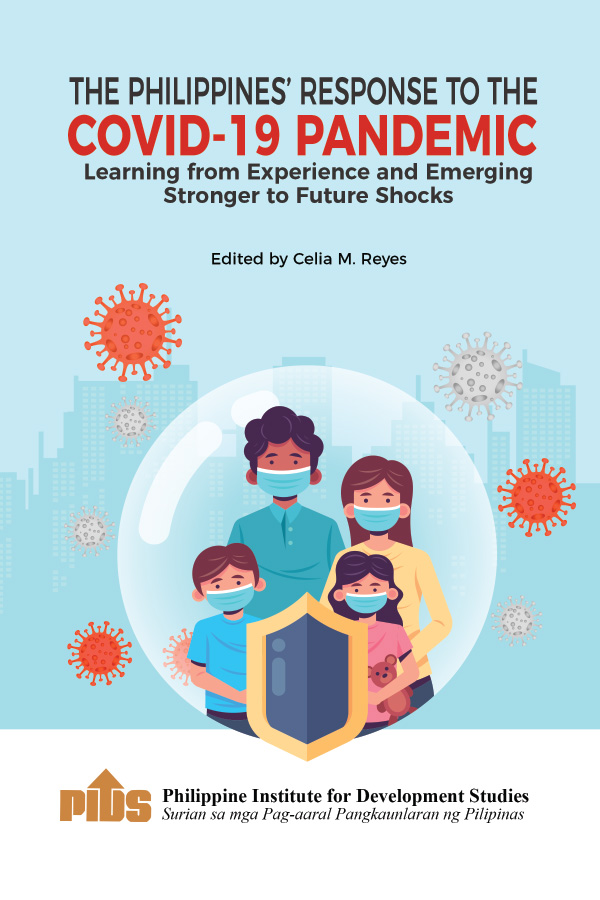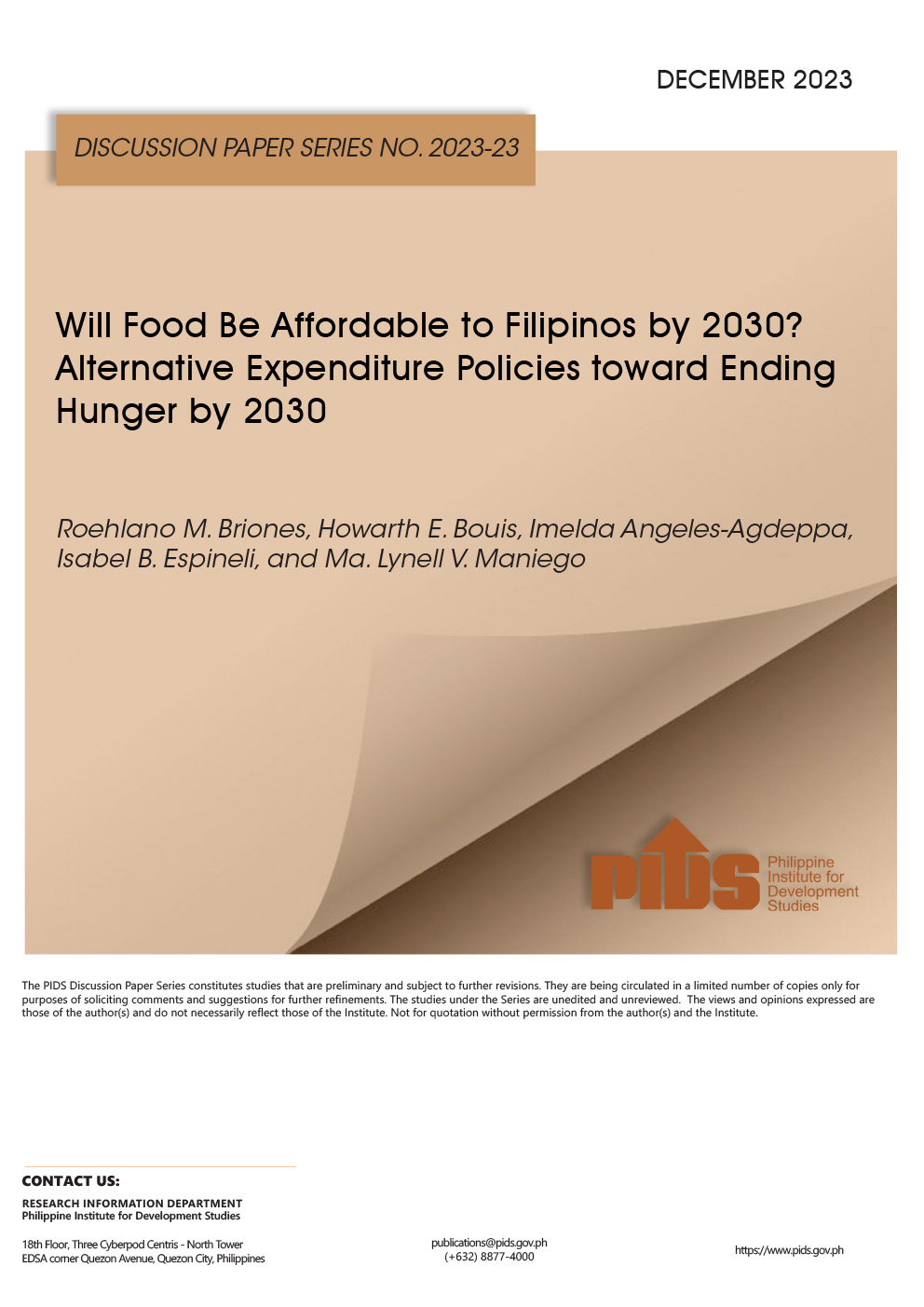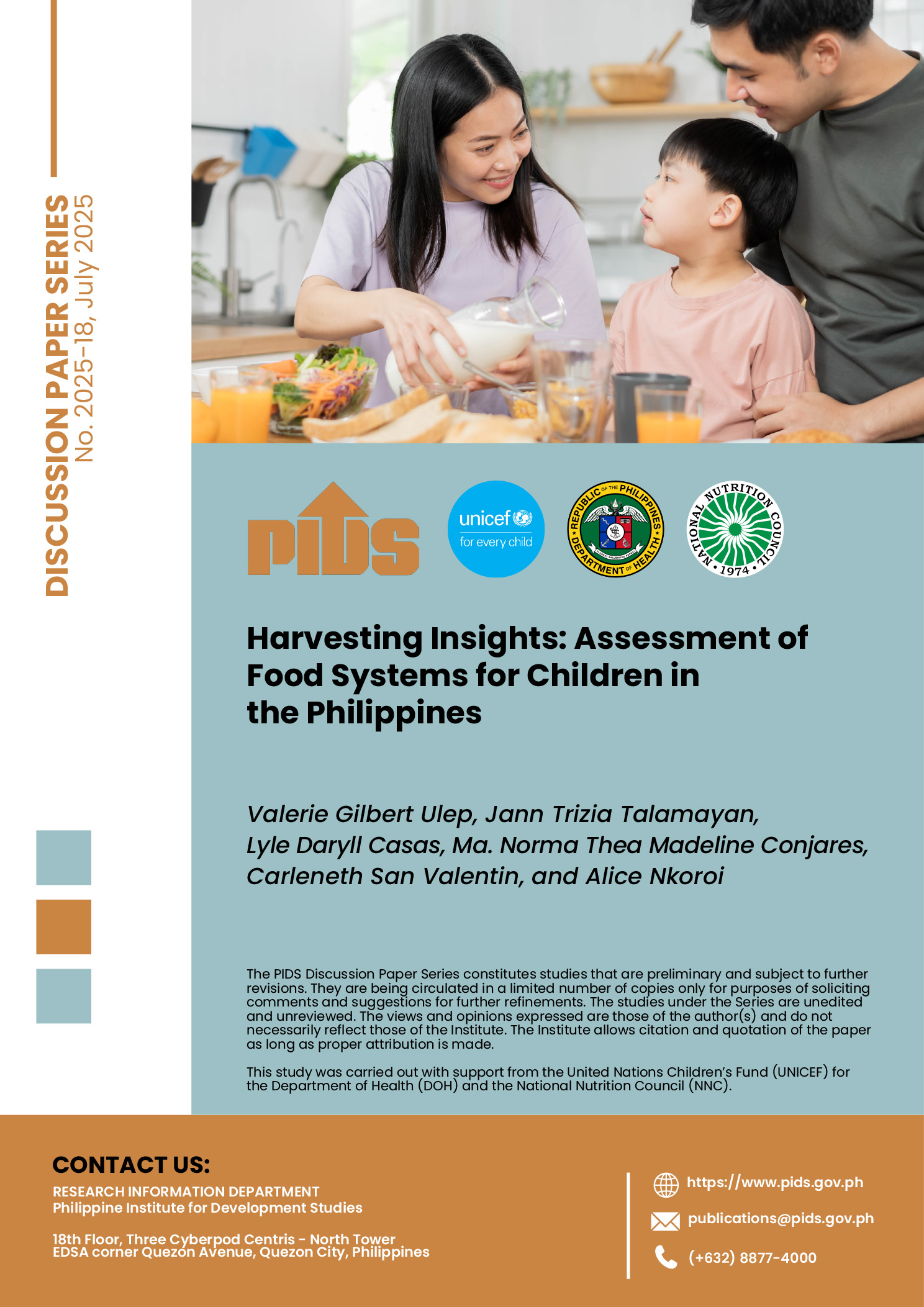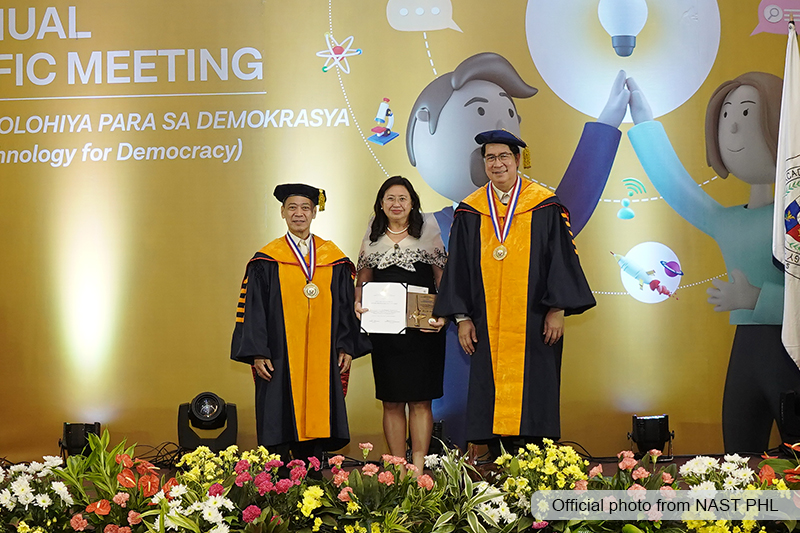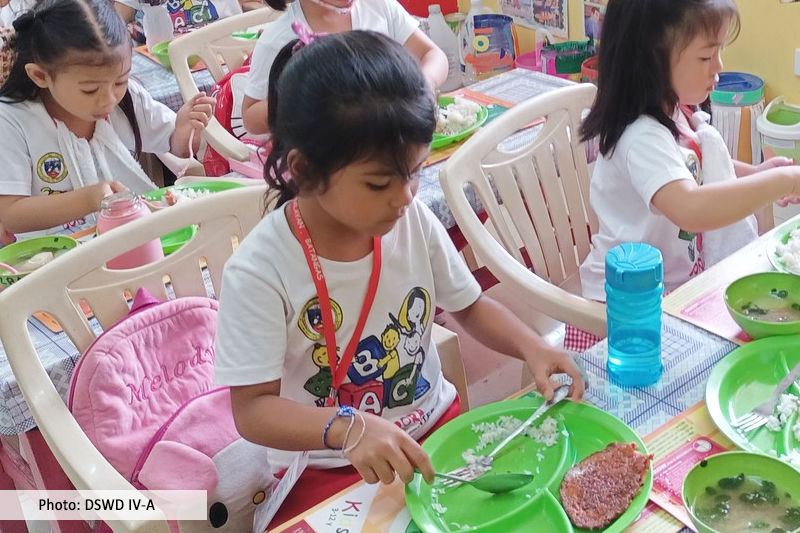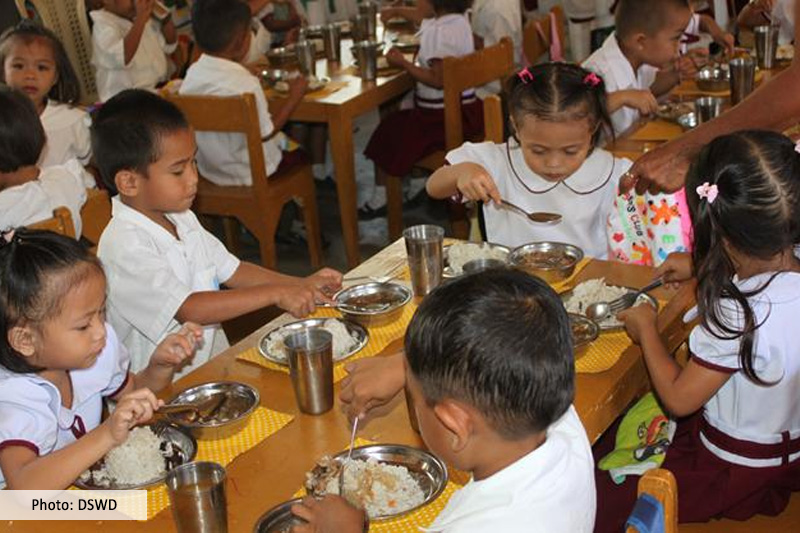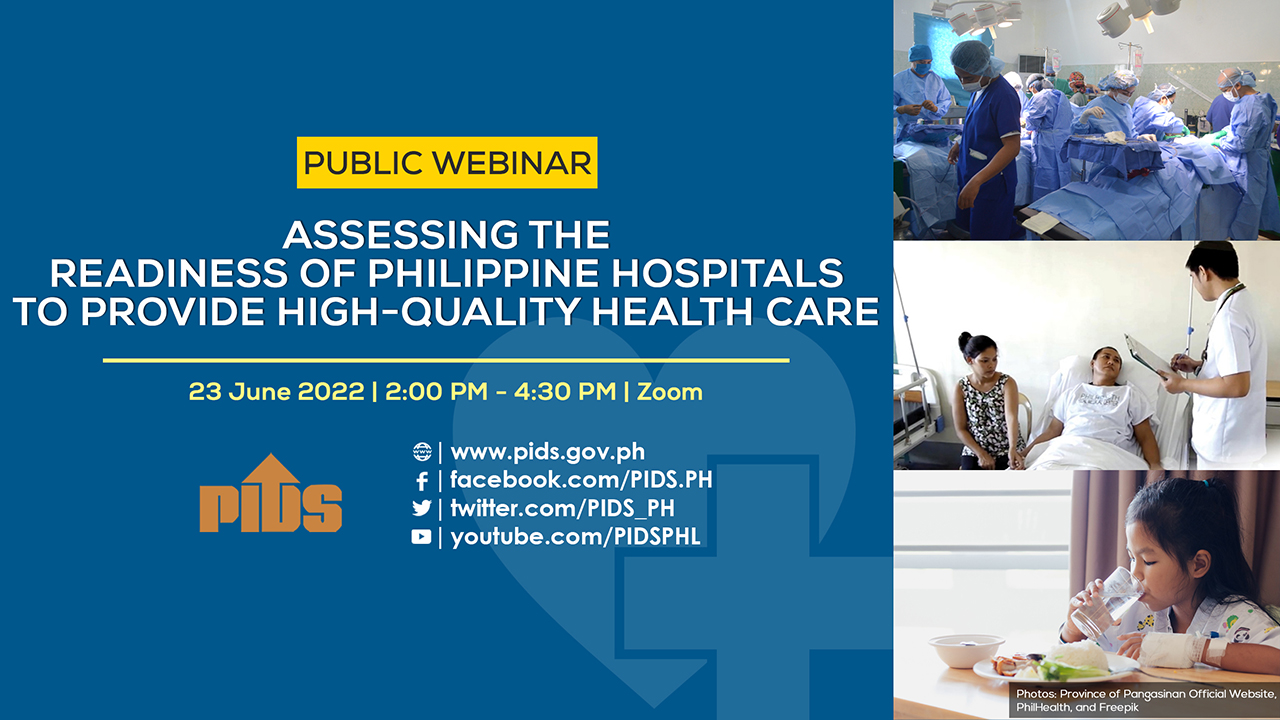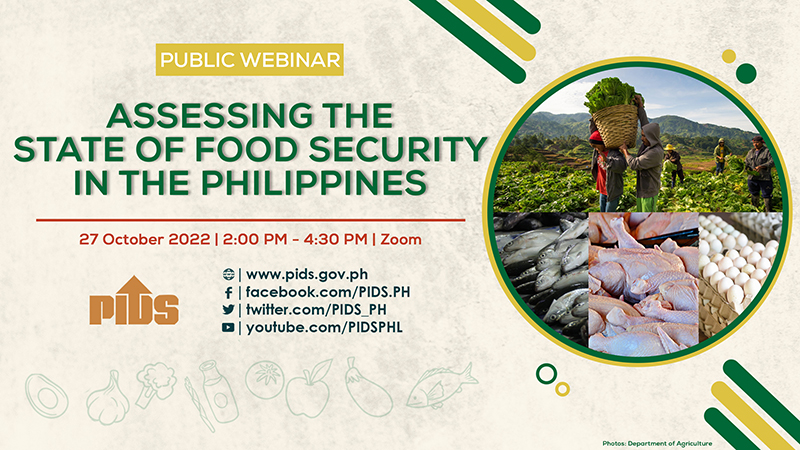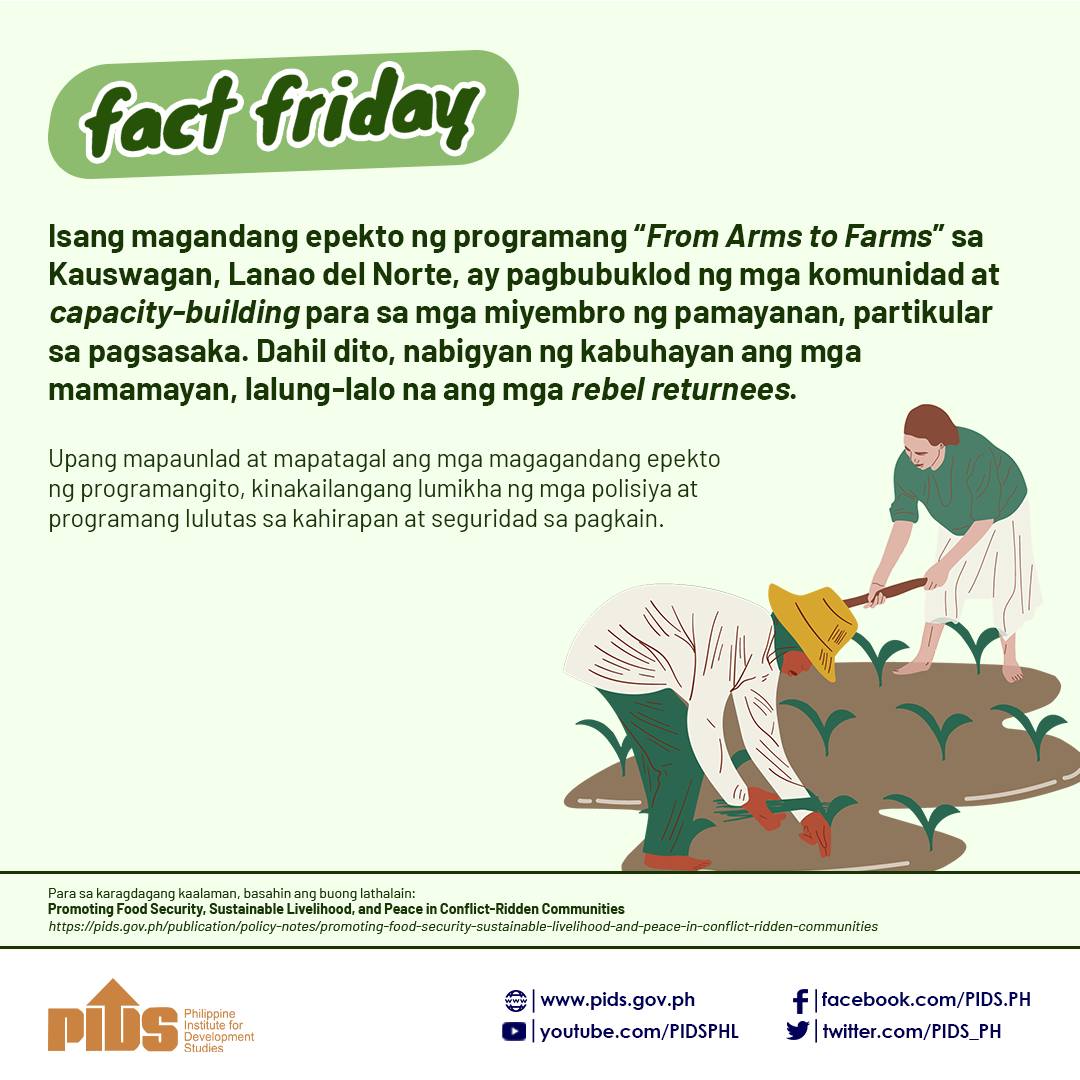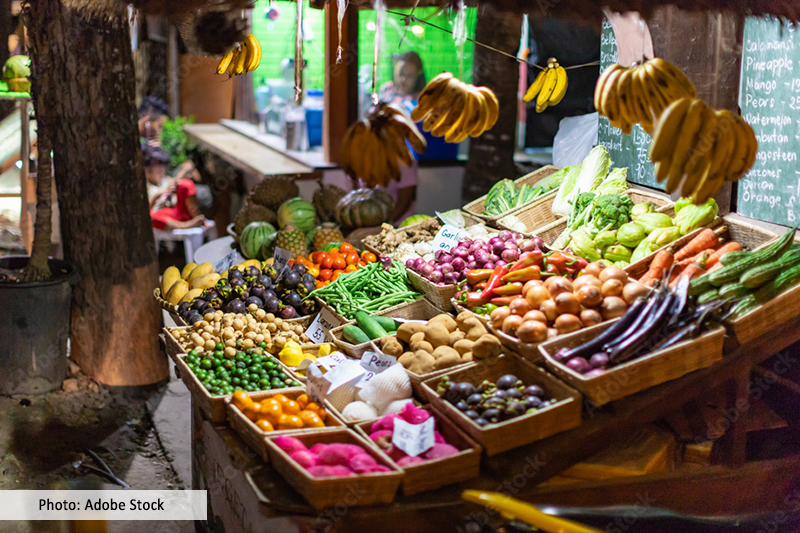
Addressing the rising food inflation requires the efforts of various sectors as well as systemic and institutional reforms. Government policies and investments should be aligned with “transforming food systems to achieve the stability of food prices”.
This was emphasized by De La Salle University Professor Marites Tiongco in her presentation at a recent webinar conducted by the Philippine Institute for Development Studies (PIDS). The virtual event featured relevant studies of selected Socioeconomic Research Portal for the Philippines (SERP-P) partner-institutions on the theme “Nourishing Our Future through Food Security and Nutrition” in support of World Food Day.
Tiongco, who also serves as a congressional research fellow at the House of Representatives, noted the increase in food inflation from August to September 2023. Using the latest figures from the Philippine Statistics Authority (PSA), she and her coauthors saw that year-on-year inflation rates for vegetables and rice were relatively high in the last four months. Meanwhile, month-on-month inflation for vegetables declined from 11.2 percent in August to 2.5 percent in September, but it rose from 4.9 to 8.4 percent for rice.
“Historically, food inflation contributes most to headline inflation. High food prices translate to overall high inflation. Inflation in the price of meat and fish are the highest contributors to food inflation,” Tiongco explained based on PSA figures.
Highlighting findings from a study of PIDS Senior Research Fellow Roehlano Briones that the poorest households spend approximately 60 percent of their total income on food, Tiongco alerted that the rising food prices, if not abated, will lead to malnutrition and other health issues. This can exacerbate the already serious problem of malnutrition in the country. Currently, one-third of Filipino children under five years old are stunted or have a height that is short for their age.
Tiongco recommended addressing high food prices by looking at all angles of the problem, including the production, market, legislative, and institutional constraints.
On the likely rise of malnutrition, she suggested beefing up “nutrition surveillance and early warning systems to monitor and treat severe and acute malnutrition”. For nutrition surveillance and food transfers, she emphasized that the priority should be pregnant women, infants, and children, given the critical importance of the first 1,000 days of life for children’s healthy growth and development.
Meanwhile, Mariano Marcos State University Professor Geovannie Stanley Malab presented the bio-intensive gardening (BIG) project implemented in schools and households in Batac City, Ilocos Norte, during the COVID-19 pandemic. With food prices still surging, this low-cost technology, which can be implemented in one’s backyard, holds much promise in alleviating food insecurity.
“BIG utilizes a small space of land to grow locally thriving plants using natural fertilizers and locally tailored organic gardening methods. It utilizes the back or front yard of houses, where each household will have ready, safe, and nutritious food for the family,” Malab explained.
The project was cascaded to the schools division office of the city, which identified and coordinated with beneficiaries and partner schools. Beneficiaries attended predispersal training and virtual briefings on project implementation, farming technologies, and their roles and responsibilities. Background checks and ocular inspections were also conducted to assess the physical presence and suitability of the project area. Materials on biointensive gardening were distributed to teachers and interested individuals during seminars and training.
Discussing lessons from the project, Malab recommended extending its implementation to other elementary schools by aligning it with the Department of Education’s Gulayan sa Paaralan program.
“We must support teachers in guiding pupils to apply recommended technologies for sustainable vegetable farming and fostering a culture of environmental awareness and practical agricultural skills at an early age,” he added.
Malab also highlighted the importance of promoting vegetable gardening in technical-vocational-livelihood education and elementary schools and encouraging community involvement to help foster good practices in agriculture and environmental consciousness.
Watch the webinar at https://www.facebook.com/PIDS.PH/videos/2657274684437431/?mibextid=zDhOQc and https://youtu.be/h3GC4sMMNlE?si=4OeHLybpl4RVv5fx.
For more videos of PIDS events, go to https://pids.gov.ph/videos. ###

